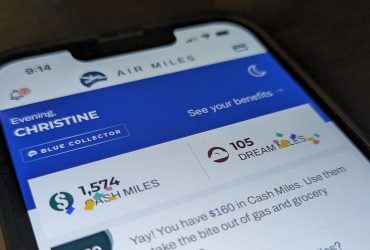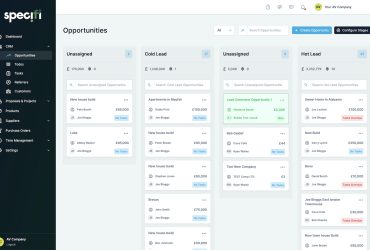Want to feel old? Google celebrates its 25th birthday this month, marking a quarter-century since the company that began as a search engine and grew to become one of the most influential websites and brands in tech, has been around. There have been many milestones through the company’s history, and as we celebrate, it’s a good time to look back.
The History
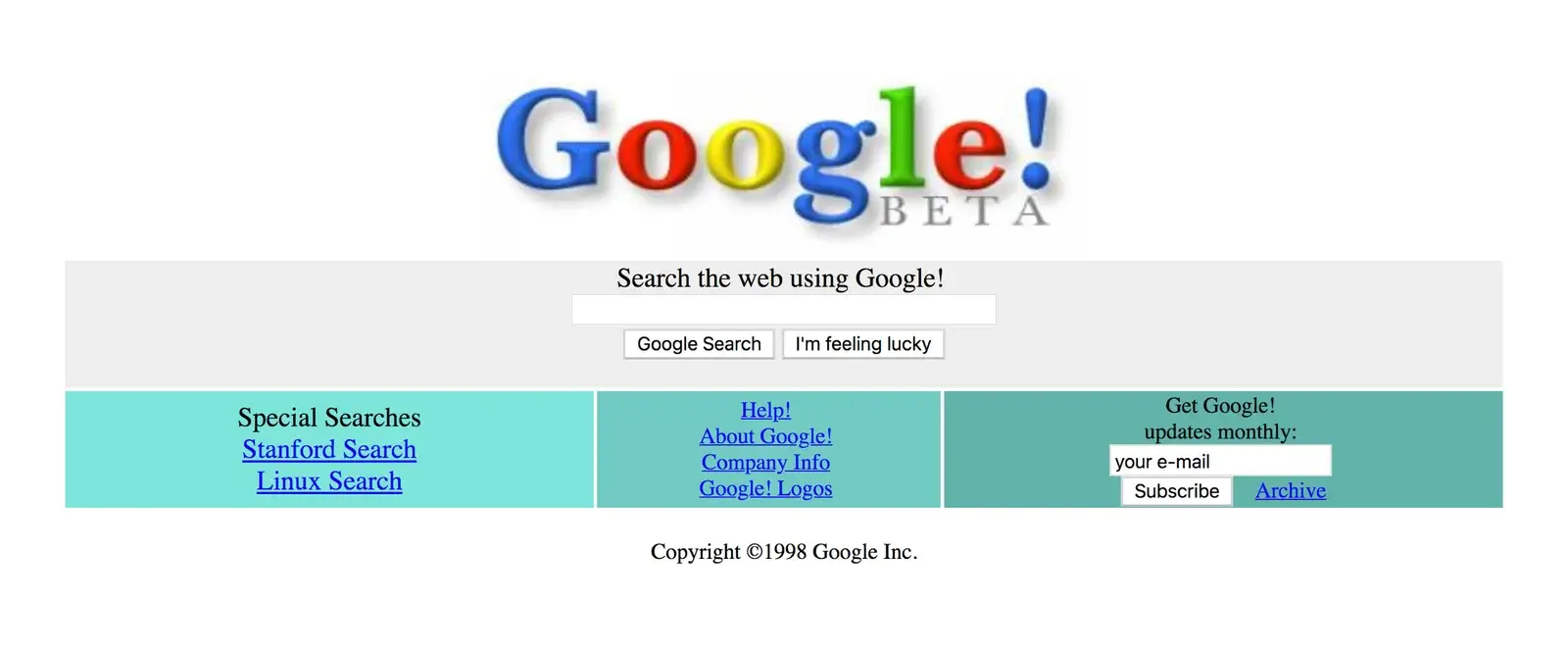
Google launched on September 4, 1998 by a pair of Stanford University students, Larry Page and Sergey Brin. Interestingly, there was a third individual named Scott Hassan who reportedly wrote much of the code that became Google Search, but he left the company before it officially launched (it was known as BackRub at that time).
Google was built around a genius algorithm that could, instead of ranking results by how many times the search term appeared on the page, analyzed the relationships among the various websites that existed at the time. Hence the name BackRub: the system would look at backlinks to determine how “important” a site really was.
Of course today, Google’s algorithms are constantly changing and media companies frustratingly work to figure out how best to utilize them. So much so, in fact, that SEO specialists have emerged as a new occupation, designed specifically to navigate the complex web system and Google Search, as well as other search engines.
The name Google was selected as a play on the word googol, which resembles the number 10 to the power of 100: in essence, indicating that the search engine could distill and organize tons and tons of information. Today, Google, owned by parent company Alphabet, Inc. is one of the most powerful companies in the world. And Google offers a multitude of not only services but also products.
Some of its most popular services include the Gmail e-mail service, Waze and Maps navigation, Cloud computing, Chrome web browsing, YouTube video sharing, Workspace for productivity, Android mobile operating system, Drive cloud storage, Translate language translation, Meet video meeting, and more.
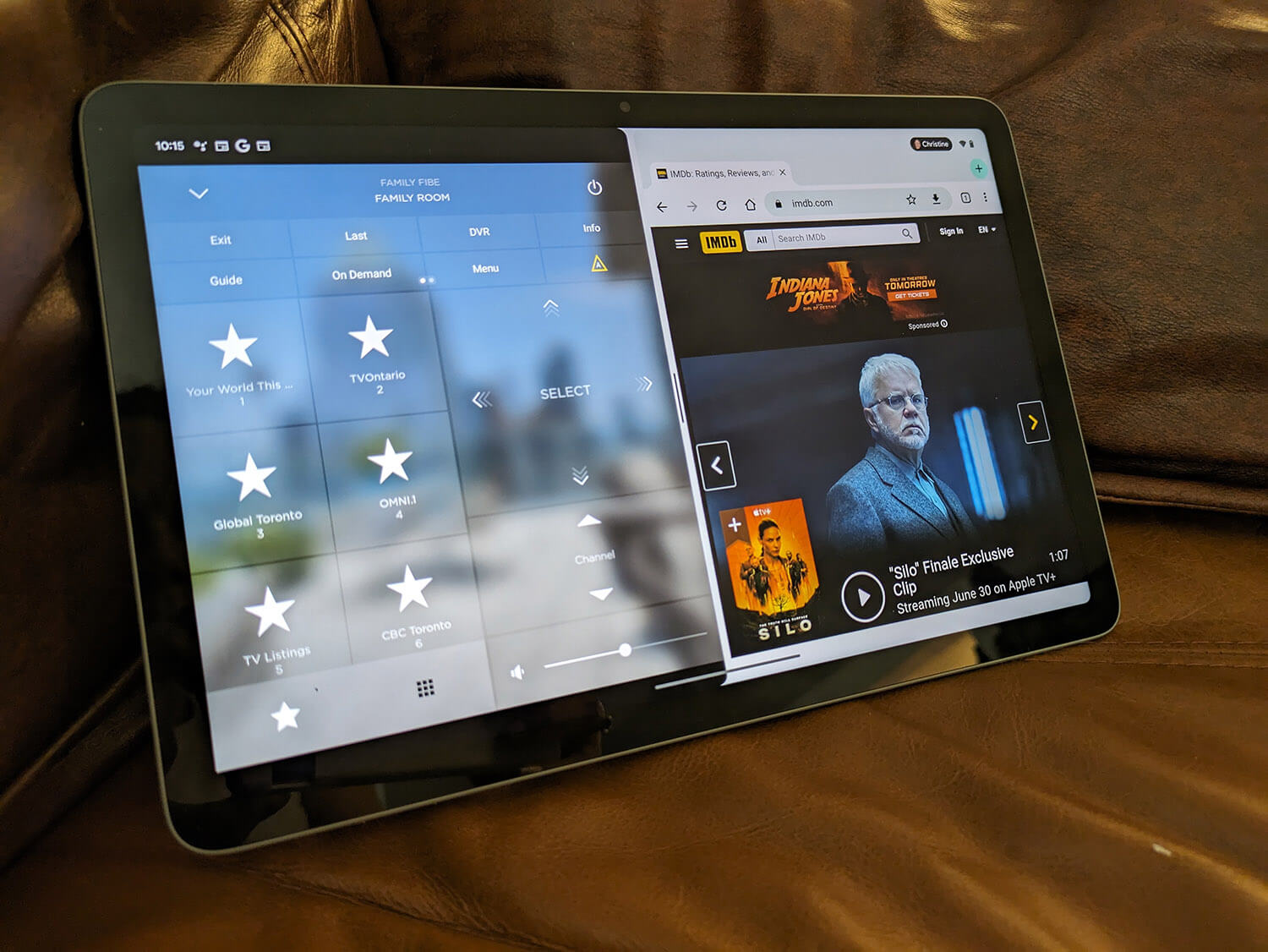
On the product side, Google makes its own smart speakers and displays, smart home devices under the Google Nest brand, smartphones, smartwatches, and other mobile products and accessories under the Pixel brand (as well as Fitbit), Chromebooks, and more. It also owns its own artificial intelligence in Google Assistant, machine learning APIs, and more.
Not every Google product and service has been a success, though. Some flops include the Hangouts social site, Stadia gaming, Glass, Google+, Nexus, and more.
A Timeline of Fun Facts
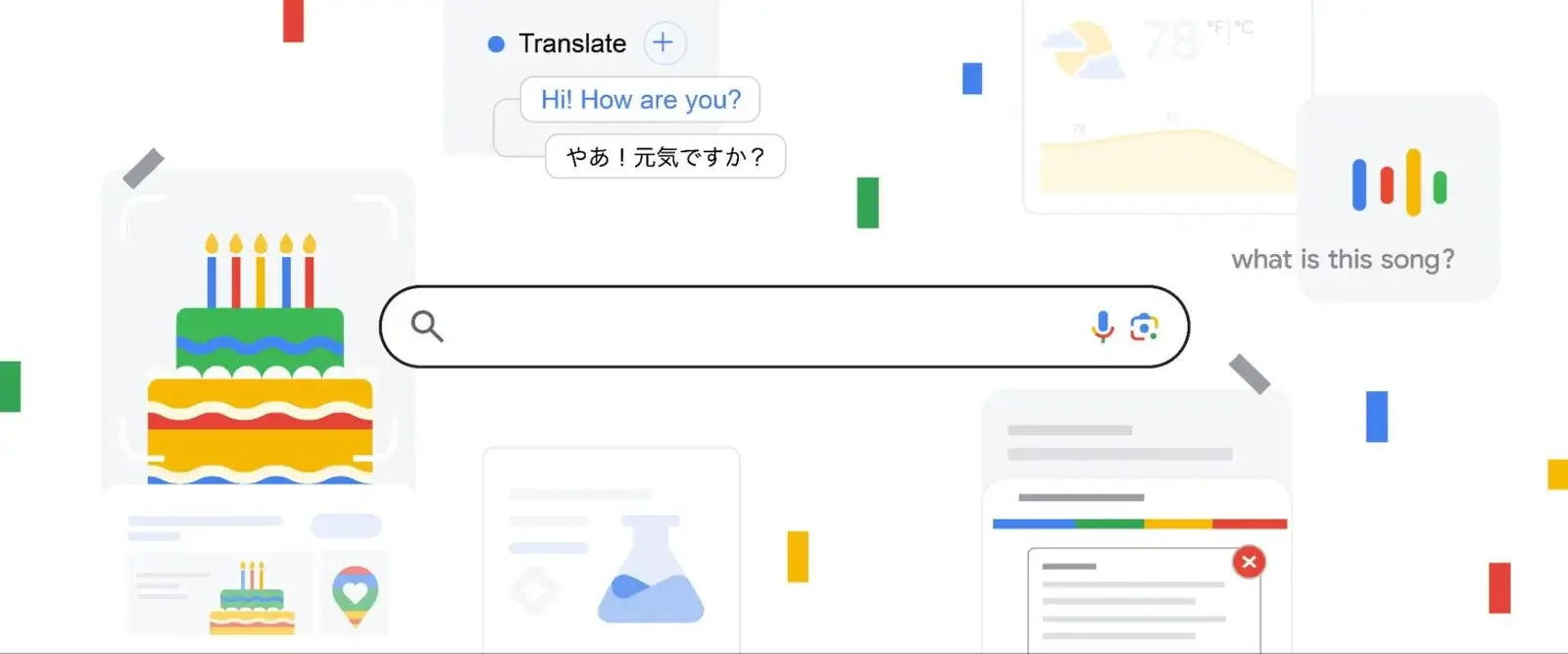
In celebration of its anniversary, there are some fun facts worth learning about Google. For example, did you know that Google Images was inspired by search interest in Jennifer Lopez’s Versace dress at the 2000 Grammy Awards? (Yes, that green one with the plunging neckline).
One of the most useful but also most underrated search features is the “did you mean” suggested spelling option, which quietly launched in 2001 to help people correct typos and spelling mistakes. Today, you can completely misspell words, even someone’s name, and Google is so smart, it will figure out what you are trying to type. Google News, meanwhile, was launched in 2002 after the company realized how much difficulty people were having finding timely information about the September 11 attacks the year prior.
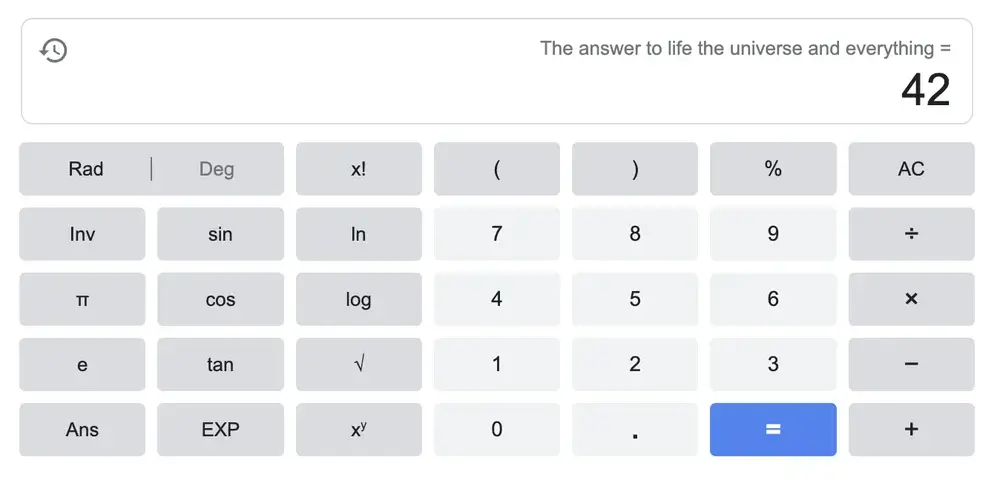
Easter eggs are one of the most fun features of Google: search for a specific term and you might get a surprise result, like glitter bursting on the screen, or a hilarious other effect. Ask Google to do a barrel roll, for example, and you’ll see what I mean. The first Easter egg was developed in 2003 providing the “answer to life, the universe and everything.” Go ahead, type in the search query and you’ll see the now well-known answer.
Another feature we often take for granted is autocomplete, which will intelligently complete your query as if Google is in your head, knowing exactly what you want. Launched in 2004, Google says autocomplete helps reduce typing by 25%, saving more than 200 years of typing time per day for its users.
Google had the potential to save trees and space in homes by replacing those massive Yellow Pages books, and it did just that when it launched local information in 2004. Imagine that there wasn’t a time you could simply Google “what pizza places are nearby?” and see the exact names and addresses of everything in the area. Now, of course, you can go right to the venue’s website from the search result, call or e-mail them, map directions to walk, take a bus, or drive there, and even see a long list of reviews. Google says its local results now drive more than 6.5 billion connections for businesses every month.

Other pivotal launches that decade include Google Translate in 2006, which today supports more than 100 languages, Google Trends that same year, universal search with links, images, videos, and local results in 2007, and the Google Mobile app for mobile devices in 2008. When a mother couldn’t find poison control information in a search after her daughter swallowed something she thought might be dangerous, Google added a poison control hotline box at the top of its search results in 2009. This has since been expanded to include other emergency hotlines for things like suicide prevention.
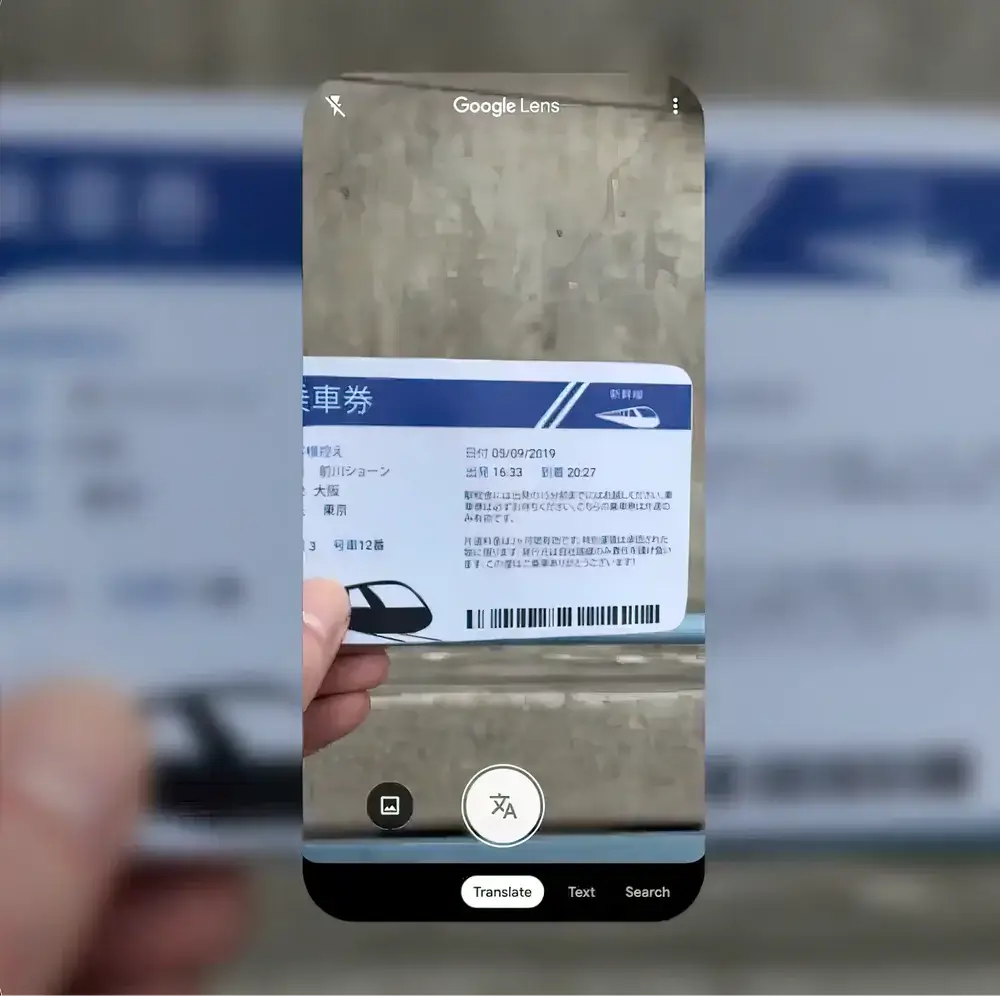
In 2017, Google took search even further with Lens, which lets you hold your camera up to an object to compare it to other similar images online and help identify it. Google says Lens now sees more than 12 billion visual searches per month.
A fun launch was Hum to Search, which debuted in 2020. Did you know you can literally hum, whistle, or sing a song or melody into Google and its machine learning will identify potential song matches and artists? Open the Google app on an Android device, tap Search a song, then start humming. (I tried it with the simple tune “Happy Birthday” and it works!)
Google continues to innovate with new technologies in search and beyond. While we might have mixed feelings about the influence Google has, its tremendous data collection capabilities, sometimes invasive nature, privacy controls, and more, there’s no denying the impact Google has had over the last 25 years.
With AI as the next evolution in search, Google is poised to be at the forefront. The name has become synonymous with search and the brand is one of the most recognized, if not the most recognized, in the world.
In reflecting on the anniversary, Google CEO Sundar Pichai said: “An essential truth of innovation is that the moment you push the boundary of a technology, it soon goes from extraordinary to ordinary. That’s why Google has never taken our success for granted.”
The company began with two (arguably three) young men with a novel idea they believed could change the face of the Internet. They were right.






